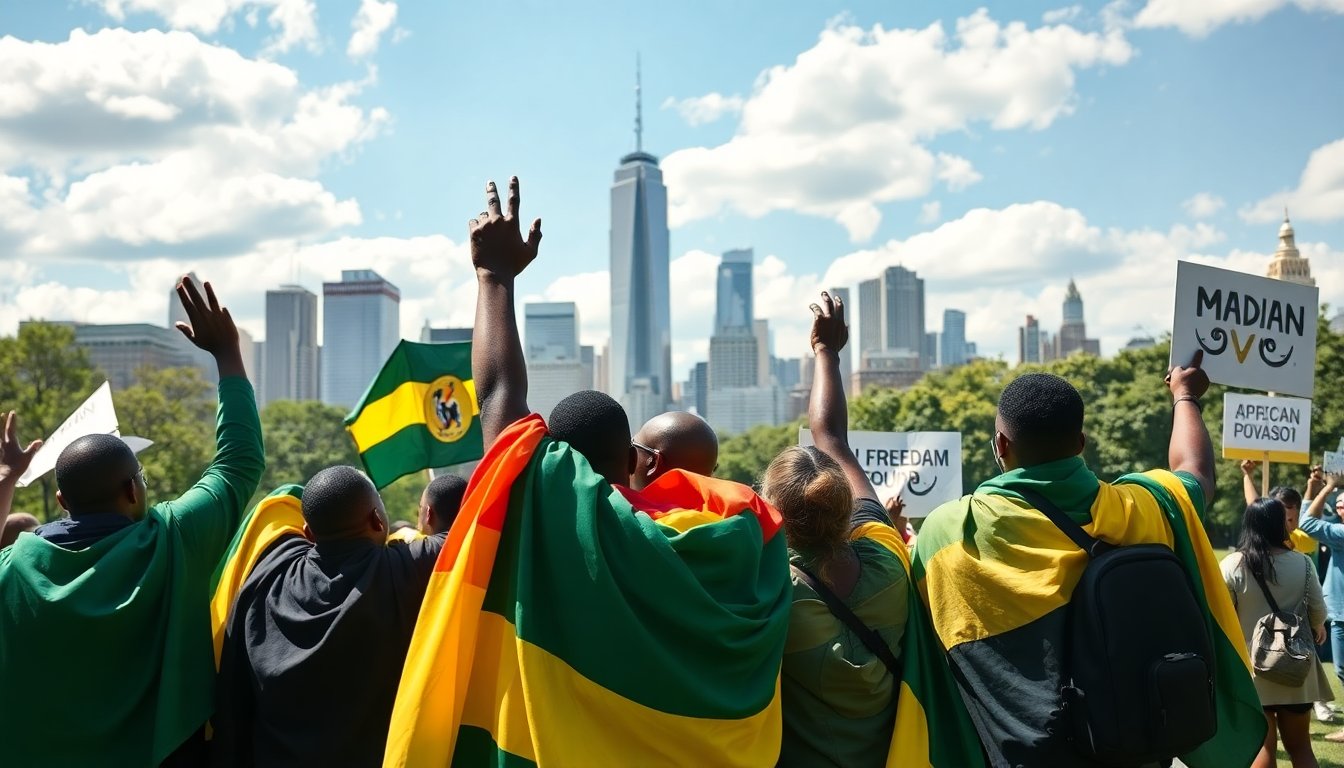Table of Contents
The recent mayoral victory of Zohran Mamdani in New York City has generated significant enthusiasm, particularly among those in Uganda advocating for political reform. As the country continues to face the long-standing leadership of President Yoweri Museveni, who has been in power for nearly four decades, Mamdani’s success symbolizes a beacon of hope. Activists and opposition leaders in Uganda view his achievement as evidence that change is possible, even amid entrenched authoritarianism.
Joel Ssenyonyi, a prominent opposition figure within Uganda’s Parliament, articulated that while Mamdani’s win serves as motivation, it feels somewhat distant from their reality. He stated, “It’s a big encouragement even to us here in Uganda that it’s possible. But we have a long way to get there.” This sentiment highlights the challenges faced by those pushing for political change in a nation dominated by the same leader for generations.
Echoes of hope from Uganda’s youth
At Makerere University in Kampala, excitement surrounding Mamdani’s victory is palpable. The university community resonates with his success, especially given his father’s previous academic role there. Anthony Kirabo, a 22-year-old psychology student, expressed, “Seeing Zohran up there, I feel like I can also make it. It makes me feel good and proud of my country because it shows that Uganda can produce some good leaders.” This connection to Mamdani’s achievement not only fuels personal aspirations but also instills hope for a brighter future in Uganda.
Potential for tourism and investment
Kirabo’s pride in Mamdani’s success extends beyond personal aspirations; he envisions positive implications for Uganda’s global image. He expressed hope that this newfound recognition could attract more tourists to the East African nation. The notion that Uganda can produce capable leaders like Mamdani ignites optimism that the country could secure foreign investment and enhance its international reputation.
Museveni’s enduring grip on power
Despite the optimism surrounding Mamdani’s win, the political landscape in Uganda remains fraught with challenges. Yoweri Museveni, who has been in power since 1986, faces increasing criticism for his authoritarian rule and suppression of dissent. His government has been accused of manipulating elections, stifling media freedom, and employing violence to maintain control. As the 81-year-old leader prepares for yet another election in January, concerns about a peaceful political transition persist.
The long road to change
Activists and opposition leaders acknowledge that the journey toward political reform in Uganda will not be straightforward. The persistence of Museveni’s regime, marked by a lack of genuine democratic practices, raises questions about the feasibility of meaningful change. As Ssenyonyi noted, although Mamdani’s victory is encouraging, it represents merely one step in a larger struggle for democracy and good governance in Uganda.
Furthermore, fears of potential violence during the electoral process complicate the situation. With reports of electoral fraud and human rights abuses in previous elections, many Ugandans remain apprehensive about the future. There is hope that Mamdani’s success can ignite a movement that motivates Ugandans to demand their rights and advocate for authentic leadership.
Zohran Mamdani’s triumph in New York serves as a poignant reminder of the potential for change, not only in his adopted city but also in his country of origin. While the path to political reform in Uganda is laden with challenges, the inspiration drawn from Mamdani’s victory may illuminate the way forward for a new generation of leaders and activists committed to fostering a better future for their homeland.


